
Salesian missionaries have been serving in Sierra Leone since 2001, when they began working to rehabilitate former child soldiers. In the years since, Don Bosco Fambul, located in the country’s capital city of Freetown, has become one of the country’s leading child welfare organizations—offering food, clothing, crisis intervention services, shelter, educational opportunities, long-term counseling and family reunification.
Food security in Sierra Leone is undermined by chronic poverty. The UN World Food Program reports that over half of the population lives under the national poverty line of approximately $2 per day. According to the 2016 Global Hunger Index, Sierra Leone also faces an alarming level of hunger, with nearly 38 percent of children younger than 5 years of age suffering from chronic malnutrition.
Young people, especially, face significant challenges in accessing education: with too few teachers, and school buildings destroyed in the war, resources are thin. And persistently high illiteracy rates mean that an estimated 70 percent of Sierra Leone’s youth are un- or under-employed.
Sierra Leone is still recovering from a brutal 10-year civil war. More than 500,000 people were displaced and more than 60,000 children were orphaned and left homeless. Girls and young women are especially vulnerable in Sierra Leone. Close to 200,000 young girls and older women were sexually assaulted during the war, according to aid agencies.
The country was also hard hit by the Ebola crisis. Salesian missionaries were on the forefront of efforts to help prevent Ebola in communities throughout Sierra Leone and provide care for children left orphaned by the deadly epidemic.
Work by Salesian missionaries in Sierra Leone in recent years includes not only reaching out to at-risk youth and providing educational opportunities but responding to urgent needs. Salesian Missions has supported this work through its “African Crisis Fund” and with the delivery of food aid and other essential supplies.
Don Bosco Fambul reaches out to an estimated 2,500 street children (homeless youth) in the region each year. The success of the street children rehabilitation program is credited to the organization’s holistic approach focusing on attending to basic needs (food, clothing and a safe place to sleep) as well as personalized medical, psychological, pedagogical, social and spiritual care of the children. This gradual process includes formal classes, daily games, sports, music, singing, drama, dancing, counseling and prayer. Their parents and extended families are contacted several times by social workers before final reunification.
During the Ebola crisis, Don Bosco Fambul (with assistance from the Catholic non-governmental development organization, Manos Unidas of Spain) transformed a school into a home for 120 boys orphaned by Ebola. In addition to implementing precautions to protect workers and other students, this unique care center for orphans not only met the children’s basic needs but also provided them schooling and psycho-social support to help heal their trauma.
Youth who do not have extended family are able to stay long-term at Don Bosco Fambul, attend school and participate in activities such as music, dance and organized games. Counseling is also available to help them successfully transition into adulthood.
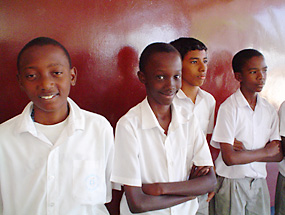
Salesian missionaries have been serving in Sierra Leone since 2001, when they began working to rehabilitate former child soldiers. In the years since, Don Bosco Fambul, located in the country’s capital city of Freetown, has become one of the country’s leading child welfare organizations—offering food, clothing, crisis intervention services, shelter, educational opportunities, long-term counseling and family reunification.
Salesian missionaries also provide primary and secondary education at schools in several other cities across the country. The Salesian Community in Lungi and Bo includes the St. Teresa’s Primary School Bo City, Saint Augustine’s Primary School, Holy Cross Primary School and Mother Teresa’s preschool. The schools also offer feeding programs so youth are able to have at least one meal a day and are better able to focus on their studies.
At a Salesian technical school for carpentry and agriculture, youth can learn any number of skills from carpentry, masonry and metal work to computer skills and graphic arts. Employment-centered training and workshops help connect youth with work opportunities. The goal is for them to break the cycle of poverty and become productive members of their community.
Salesian missionaries have been working desperately to rescue children in Sierra Leone—from child soldiers and girls victimized by child trafficking to the orphans of war and disease.
Don Bosco Fambul reaches out to thousands of street children in the region each year. This transformative and life-saving work with these at-risk youth starts with the Salesian rehabilitation and reunification programs. The holistic approach of the Salesian programs has proven successful by focusing on caring for the basic needs as well as personalized medical, psychological, pedagogical, social and spiritual care of the children.
In the wake of the devastating Ebola outbreak, Salesian missionaries at Don Bosco Fambul built a special care center for Ebola orphans. Approximately 120 children received healthcare, psychological therapy, educational opportunities and the chance to process the trauma of their experiences through music, dance and other activities. Efforts were also made to reunite the children with extended family members.
Don Bosco Fambul also operates the Child Hotline 116, which is an around-the-clock counseling hotline staffed by social workers—along with other trained professionals—offering hope and services for children who are living on the streets. The hotline was invaluable during the Ebola epidemic, providing prevention information.
Salesian missionaries from Don Bosco Fambul have also been actively providing services to young prisoners incarcerated at Pademba Road Prison. A long-term partnership between the prison and Don Bosco Fambul was established to allow missionaries to provide a number of services, including the development of a youth counseling center to give youth and their families the necessary tools for rehabilitation and reintegration upon release. Salesian missionaries provide food and water for the young inmates while also offering counseling services, medical assistance and therapy to ensure inmates are mentally fit when their prison terms have ended. Through their work, missionaries reach 250 inmates with their prison program.
In collaboration with Catholic Caritas and Sierra Leone Prisons Service, Salesian missionaries launched the Legal Support Project in 2014, providing the most disadvantaged inmates critical legal representation to ensure their rights are upheld. Many of the prisoners assisted through the project do not have family outside the prison to ensure that the court and prison system acts in a fair and balanced way. This project helps to ensure they have fair representation as Salesian missionaries work for their release.
In Sierra Leone, violence against women still runs rampant—while sadly, its perpetrators often remain above the law. Beaten, trafficked, forced into marriage (or worse), girls as young as 13 regularly fall victim to what becomes a lifetime of torment and despair—with no hope of protection. Young women are at risk for sexual violence, trafficking and forced pregnancy, among other atrocities. Today, one third of girls are forced into marriage and often sexually assaulted by their husbands before their 15th birthday.
The Salesian-run Don Bosco Fambul Girls Shelter in Freetown is working to change this, one girl at a time. Salesian missionaries, professional social workers and pastoral workers provide crisis intervention and follow-up care for girls and young women who have been victims of sexual assault. Girls that access the shelter services are also able to attend educational programs that are a part of the broader Don Bosco Fambul network of programs. These educational programs give young women the skills necessary to find and retain employment.
Don Bosco Fambul has also been helping young women caught up in prostitution come in off the streets. Father Jorge Crisafulli began this work as part of Don Bosco Fambul’s Girls Shelter in September 2016, when he launched the program aimed at searching for girls in their workplaces where they are surrounded by alcohol and drugs and at risk of danger and exploitation. The goal is to offer them shelter, health, nutrition, education, and wherever possible, reintegrate them into their families.
Young women have been empowered—to overcome discrimination, to better understand their rights, and to make choices that directly impact their lives, health and work prospects.
Don Bosco Fambul was on the forefront of efforts to help prevent Ebola in communities throughout Sierra Leone and provide care for children left orphaned by the deadly epidemic. The organization received Sierra Leone’s Presidential Award in recognition of its contribution in fighting Ebola. During the Ebola outbreak, Don Bosco Fambul mobilized its staff and immediately began providing information about the prevention of Ebola. Salesian missionaries worked with local communities to provide food aid and education about Ebola while disseminating protective clothing including long-sleeve shirts and cleaning and disinfecting agents such as chlorine. In addition, the organization provided 20 mobile hand washing basins fitted with taps and hygiene-related products to Sierra Leone’s Ministry of Social Welfare, Gender and Children’s Affairs for use in Freetown.
People who were victims of a devastating fire in Bo City received support and resources to ensure their safety, thanks to donor funding. Many of the people have a disability, such as blindness or a physical disability, and do not have jobs. With donor funding, Salesians were able to provide shelter, health and hygiene support, education, and livelihood resources for 34 people including 15 children. Salesians were able to help the children enroll in school, cover their tuition and help with school supplies.
At Don Bosco Fambul, former street children take part in a specialized reintegration program with activities including counseling, play, conflict resolution, peace education and music. Youth play and compete in soccer, basketball and other events. They develop teamwork skills—critical for youth who have learned to survive on their own—and other interpersonal skills to form lasting relationships. Youth who participate in these positive activities also gain a sense of commitment and self-worth—as well as experience some of the joys of childhood.
In addition, donor funding through Salesian Missions is providing the necessary capital for musical instruments for a new school band at St. Augustine’s Agricultural Secondary School in Lungi. The project will provide an extra-curricular program in music and entertainment that will bring relief and healing from the trauma that persists in the post-Ebola, post-civil war climate in the country.
Youth at the Don Bosco Center in Lungi are receiving support including nutrition, sanitary items, educational/training materials and medical assistance that’s been made possible with the help of donations through Salesian Missions.
Also thanks to funding secured by Salesian Missions, 120 youth attending the Don Bosco Youth Center Dwarzak Project, located in Freetown, participated in different workshops, sports and other activities. In addition, 50 youth received nutritional assistance three times a week and 80 children received educational and spiritual assistance at the youth center six days a week. These activities promote an enriched environment where youth feel secure and free.
As part of this project, Salesian missionaries held a “Youth for Life” workshop in May that discussed issues affecting girls. These workshops helped girls to develop relationships and trust. It was so successful that these workshops will be expanded to other schools in Freetown.
Additional activities hosted by the Don Bosco Youth Center include table tennis, educational films, storytelling events, spelling and quiz competitions, and brass band, keyboard and singing instruction. The Youth Center also organizes sports programming six days a week with soccer and basketball training, friendly matches in Lungi and Freetown, and league competitions.
Salesian missionaries assisted the small village of Kumbrabai, more than 60 miles from the capital city of Freetown, which was severely affected by the Ebola virus. The village once had 270 residents but 82 villagers succumbed to Ebola and 65 more who were infected fled the village. Entire families were lost and some are left with only one member. Those who remained in the village were shunned by their own people, who were afraid to enter homes where someone had died. The community was stigmatized and isolated by other villages out of fear.
Real concerns remain about how the village with so few members will survive. When the village had 270 residents, it was already a challenge to sustain the community under challenging weather conditions, frequent water shortages and other threats to growing crops and raising animals. Recently, there has been growing concern about how to work the fields to gather enough to eat with so few people as well as concern about prevention methods to stop another Ebola outbreak.
Having first visited Kumbrabai during the Ebola outbreak to distribute food, water and other aid, Salesian missionaries are now bringing hope to the village by starting projects to improve residents’ health, hygiene and sanitation practices, and enhance agricultural capacity for the long-term sustainability of the community.
In addition, Don Bosco Fambul, in collaboration with Brunnenbau Conrad Ltd, a German drilling company, engaged in a construction project to bring a new water well to the Pademba Road Prison in Freetown. The well provides nearly 16,000 gallons of water each day and a new storage facility houses the water supply that allows for 10 gallons of water per prisoner each day. Because of overcrowding and compromised infrastructure, the prison has had a serious water crisis. There is a lack of clean drinking water available as well as water for healthy sanitation and hygiene.
Poor youth, the elderly and widows benefited from a shipment of rice-meals thanks to an ongoing partnership between Salesian Missions and Feed My Starving Children, a nonprofit Christian organization committed to “feeding God’s children hungry in body and spirit.” More than 900 people in Sierra Leone have access to better nutrition thanks to this donation.
The Salesian Community in Lungi and Bo, including St. Teresa’s Primary School Bo City, Saint Augustine’s Primary School, Holy Cross Primary School and Mother Teresa’s preschool, shared this donation. The schools offer feeding programs so youth are able to have at least one meal a day and are better able to focus on their studies. The rice-meal donation was also shared with some of the teachers in the schools.
Through partnerships with Rise Against Hunger and Feed My Starving Children, Salesian missionaries were also able to ship essential life-saving food to Salesian programs during the Ebola crisis.
Salesian programs in the small coastal town of Lungi and the capital city of Freetown have new school and office furniture thanks to a donation made possible by an ongoing partnership between Salesian Missions and IRN-The Reuse Network, an organization that matches surplus items with organizations and people who need them.
The donation provided new desks, chairs, tables, bookcases and file cabinets for Salesian-run elementary and nursery schools, a library, a youth center and an office. Desks and chairs help to provide a more dignified and organized educational environment for students to complete their studies. As a result, students are often more focused on their classroom work and more prepared for their lessons.
In 2015, thanks to a bus donation from Stadt Werke Trier in Germany, Don Bosco Fambul staff were able to operate a mobile unit that went out into the streets to assist children in need. During the outbreak of Ebola, the program was stopped to focus on the epidemic and prevention education. Following the outbreak, the bus was no longer operable so the program wasn’t able to get back off the ground. Thankfully, a recent city bus donation from the city of Badajoz, the capital of the Province of Badajoz in the community of Extremadura, Spain, has relaunched the project.
The city bus is used as a mobile unit that will help thousands of children at risk of exclusion who are living on the streets of the city. The bus has been repainted and renovated. Inside, there’s space for education programs, counseling and other programs. A generator provides power for PA systems, phone charging and playing music.
The bus parks at strategic points in close vicinity to the slums and places where street children sleep. In addition to social development services, youth are provided with free HIV/AIDS counseling and testing, a free meal and free legal services for those children that are in conflict with the law. The overall goal of the mobile outreach is to help reintegrate children back with their families, if possible, or to connect them with foster families or alternative residential care for those who have spent a long time on the streets.
Don Bosco Fambul added staffing support thanks to a grant from the Flora Family Foundation secured by Salesian Missions. With the funding, Don Bosco Fambul was able to add a program manager, advocacy officer and communications officer. Thanks to the staffing support, Don Bosco Fambul raised public awareness about child sexual exploitation and promoted its Child Line 525 for reporting child abuse and crimes committed against children.

From Sierra Leone
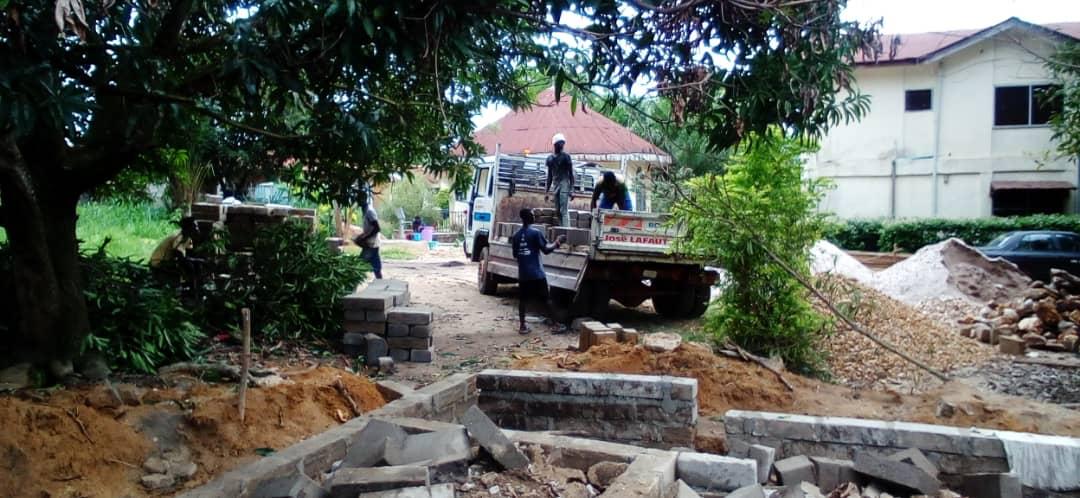
Support ranges from immediate aid to plans for long-term support. NEW ROCHELLE, NY (Dec. 2, 2024) People who were victims of a devastating fire in Bo City, Sierra Leone, received support and resources to ensure their safety, thank
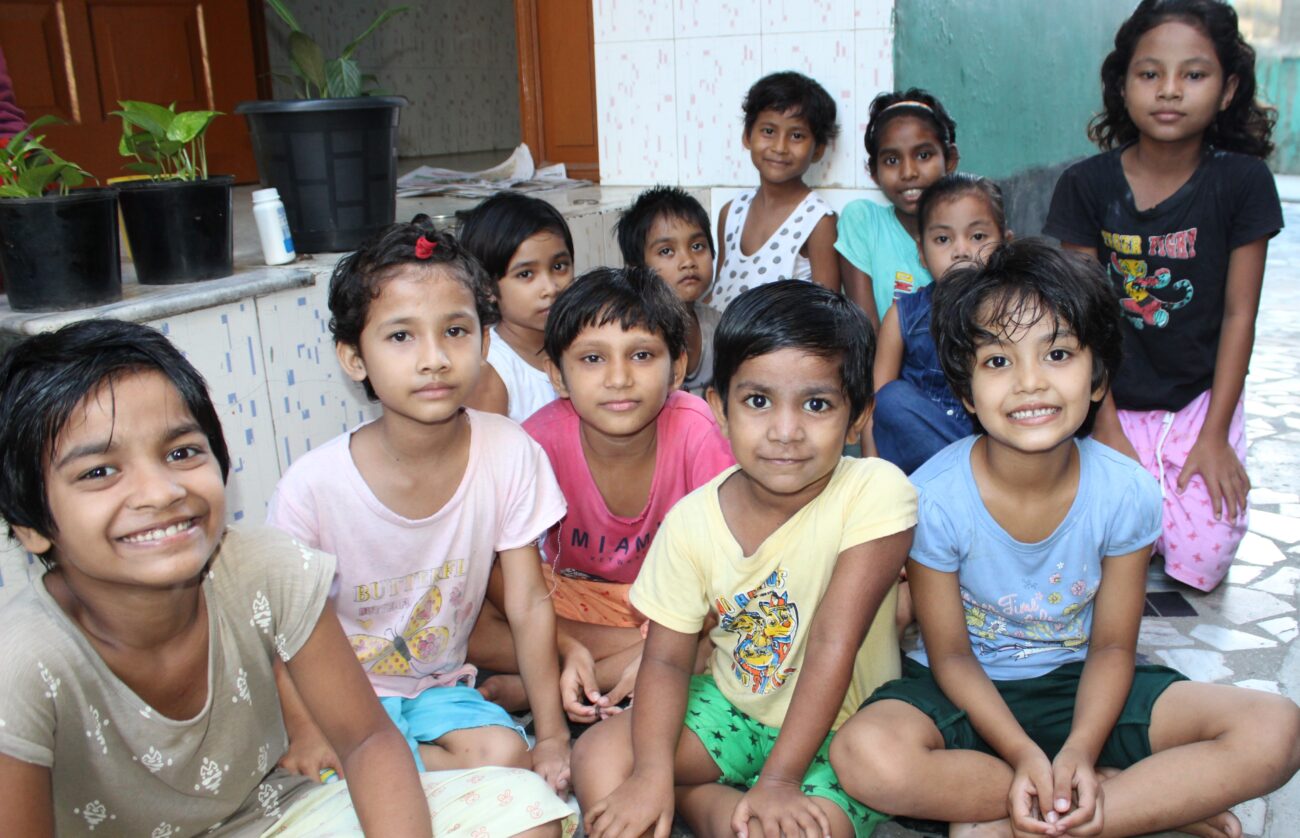
Day raises awareness about children’s issues around the globe. NEW ROCHELLE, NY (Nov. 20, 2024) Salesian Missions, the U.S. development arm of the Salesians of Don Bosco, joins humanitarian organizations and countries around the

Salesians are ensuring young girls access education around the globe. NEW ROCHELLE, NY (Oct. 11, 2024) Top of Form Salesian Missions, the U.S. development arm of the Salesians of Don Bosco, joins humanitarian organizations and cou
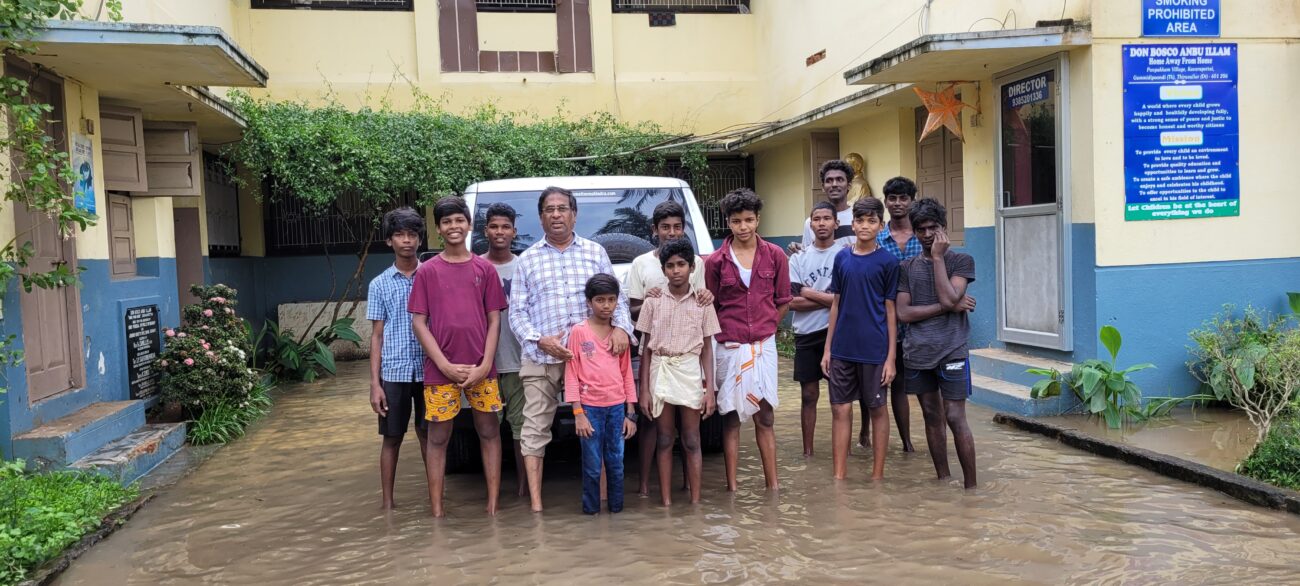
Salesians work to prevent human trafficking and to care for victims seeking second chance in life. NEW ROCHELLE, NY (July 30, 2024) Salesian Missions, the U.S. development arm of the Salesians of Don Bosco, joins humanitarian orga
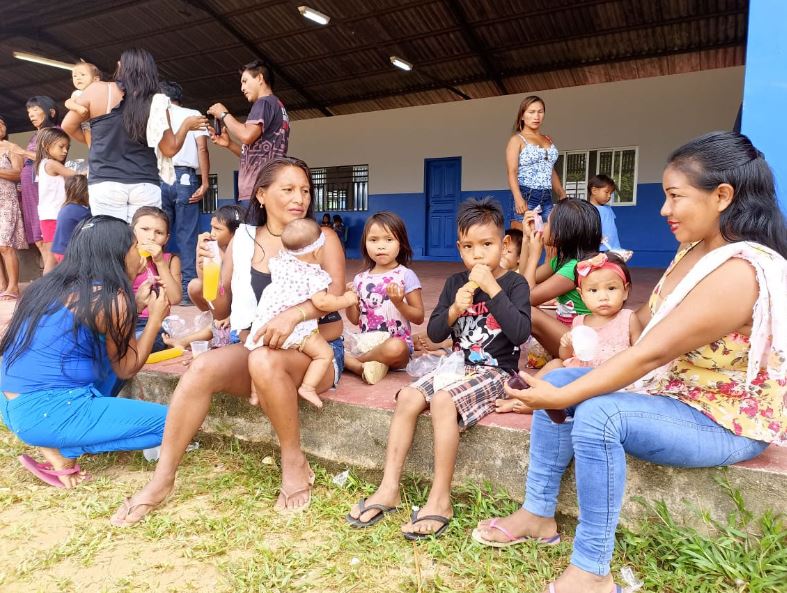
Programs provide care for youth and whole family. NEW ROCHELLE, NY (June 1, 2024) Salesian Missions, the U.S. development arm of the Salesians of Don Bosco, joins humanitarian organizations and the international community in celeb
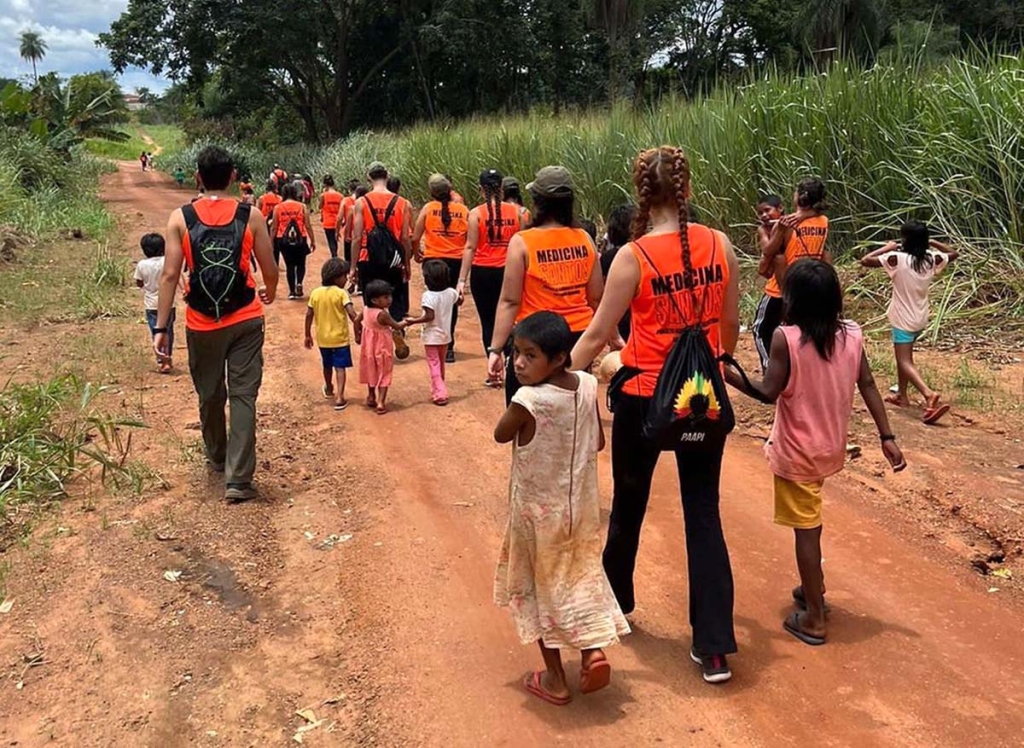
Salesian missionaries offer more than 150 medical clinics and hospitals around the globe. NEW ROCHELLE, NY (April 7, 2024) Salesian Missions, the U.S. development arm of the Salesians of Don Bosco, joins humanitarian and other int
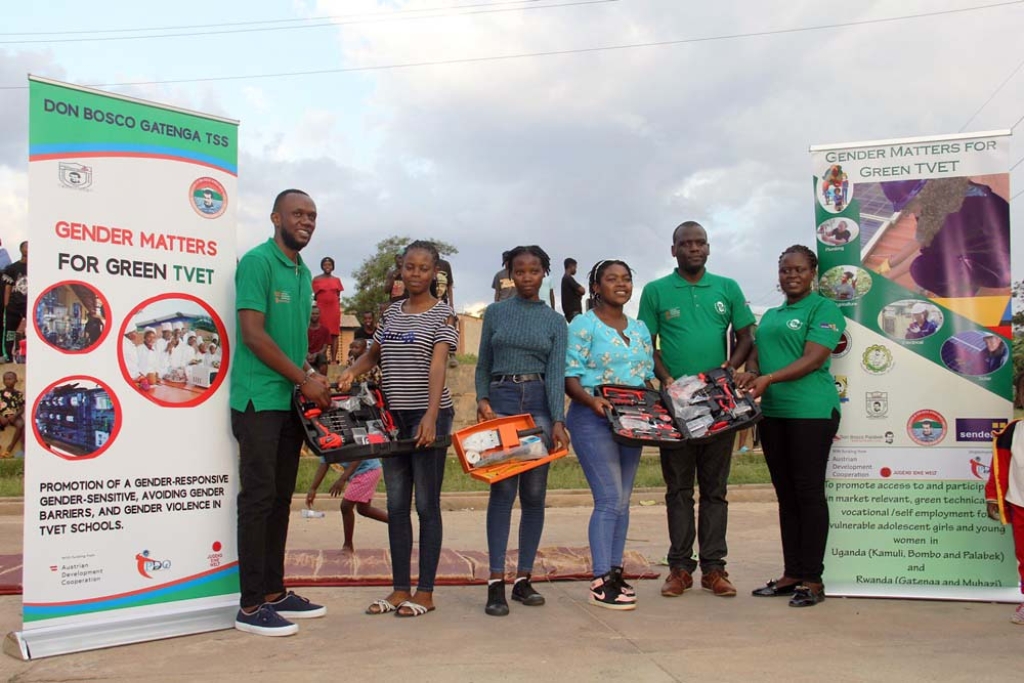
Programs provide opportunities for education and training. NEW ROCHELLE, NY (March 8, 2024) Salesian Missions, the U.S. development arm of the Salesians of Don Bosco, joins humanitarian organizations and countries around the globe
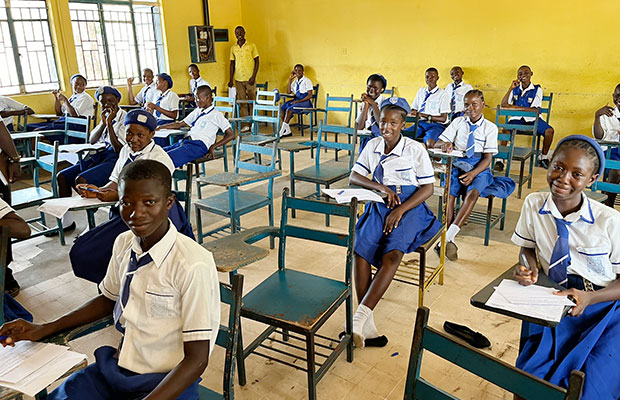
Creativity. Independence. Love, patience and kindness. At Don Bosco Fambul’s Child Care Center in Freetown, Sierra Leone, Salesian missionaries nurture the first two qualities with an abundance of the other three. And brighter f
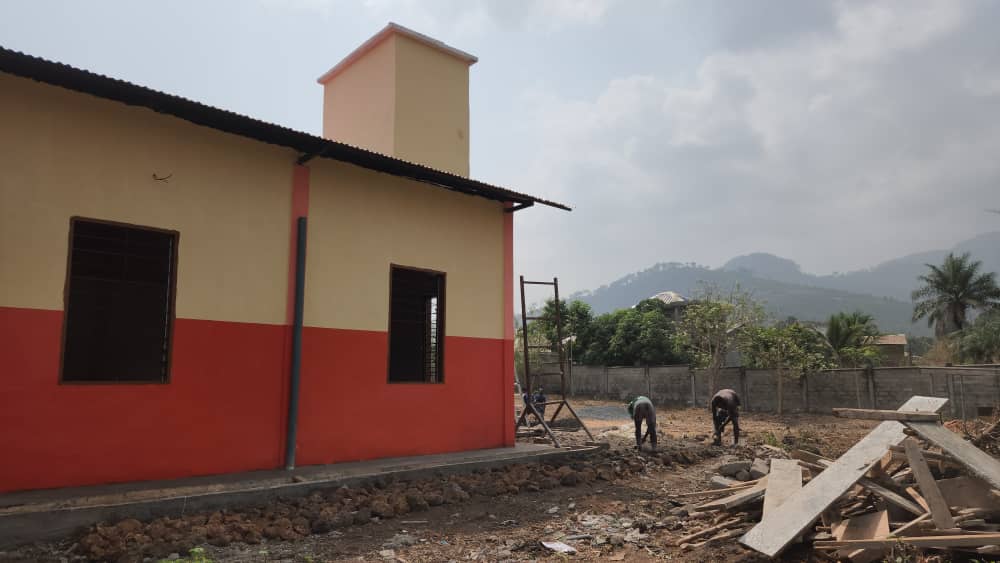
Don Bosco Fambul is leading provider of child-welfare programs. NEW ROCHELLE, NY (Feb 26, 2024) Youth at Don Bosco Fambul in Freetown, one of Sierra Leone’s leading child-welfare organizations, have a new chapel thanks to donor
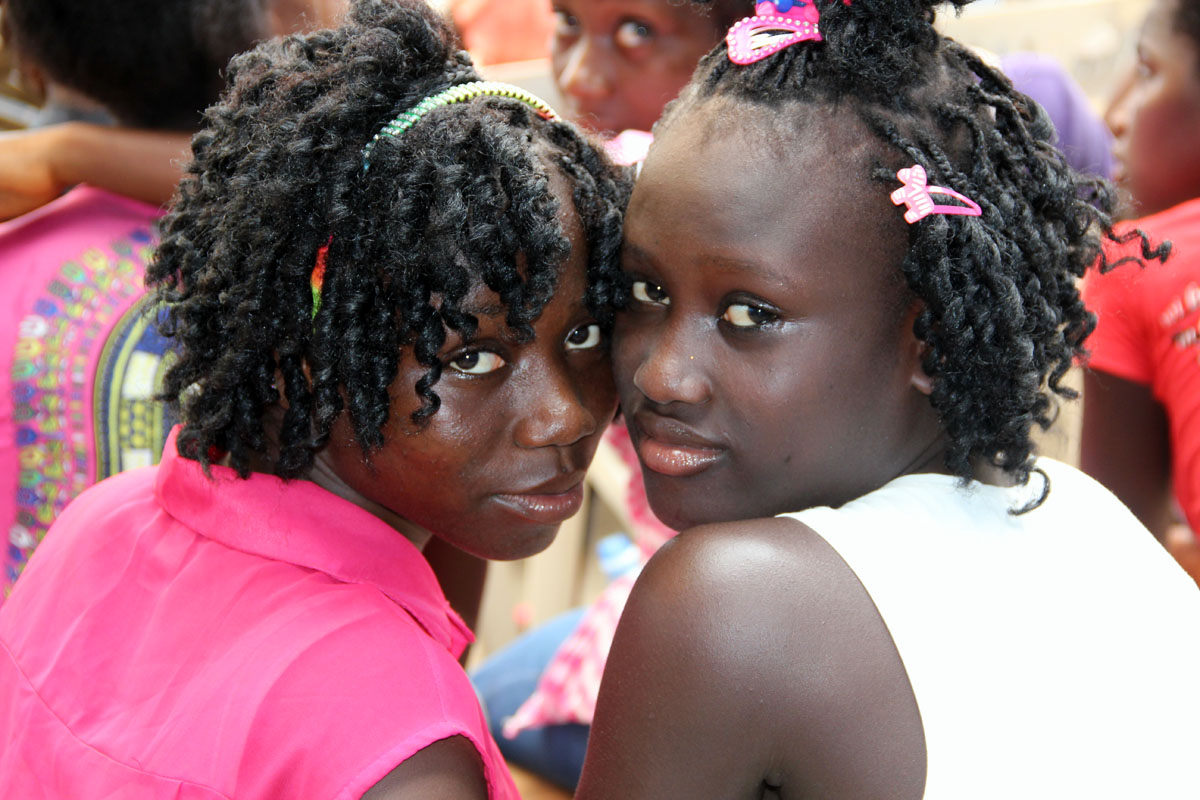
New staff raises awareness, increases advocacy to protect children’s rights. NEW ROCHELLE, NY (Feb 21, 2024) Top of Form Don Bosco Fambul in Freetown, one of Sierra Leone’s leading child-welfare organizations, has added staffi
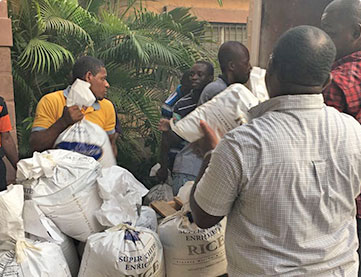
Salesian Missions includes agriculture in its vocational training programs – to ensure that youth of Rwanda learn better agricultural practices as well as keep the school self-sustaining in the face of the country’s food shortages.
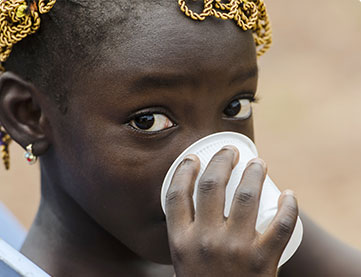
Salesian Missions includes agriculture in its vocational training programs – to ensure that youth of Rwanda learn better agricultural practices as well as keep the school self-sustaining in the face of the country’s food shortages.
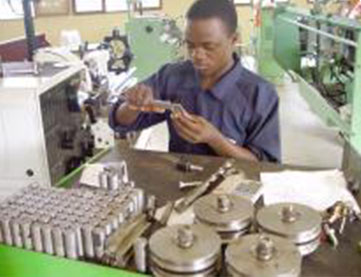
Salesian Missions includes agriculture in its vocational training programs – to ensure that youth of Rwanda learn better agricultural practices as well as keep the school self-sustaining in the face of the country’s food shortages.